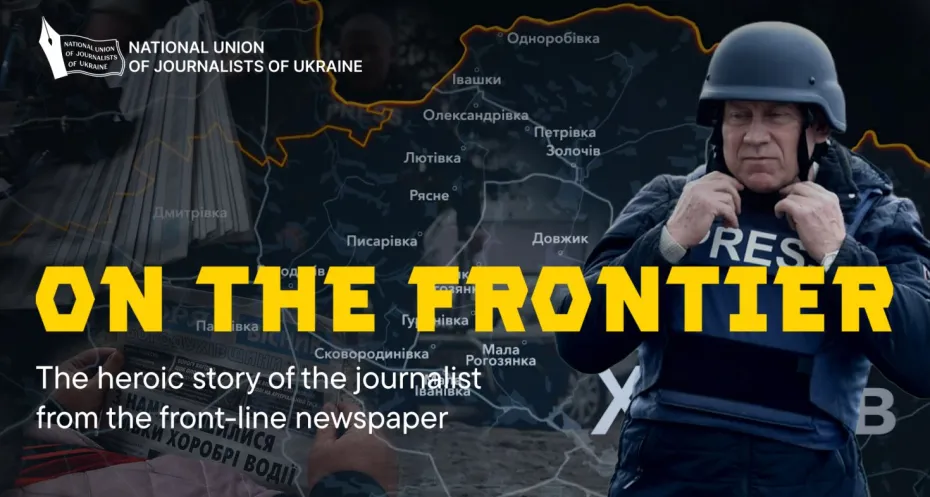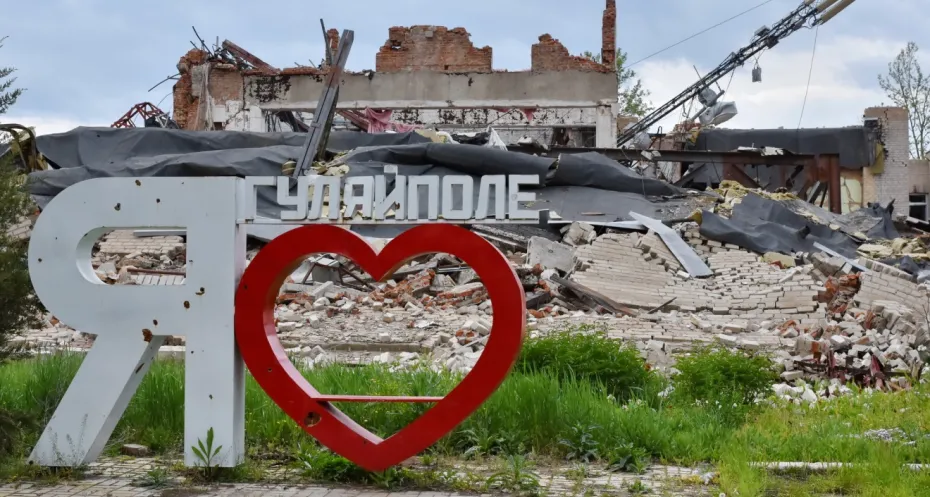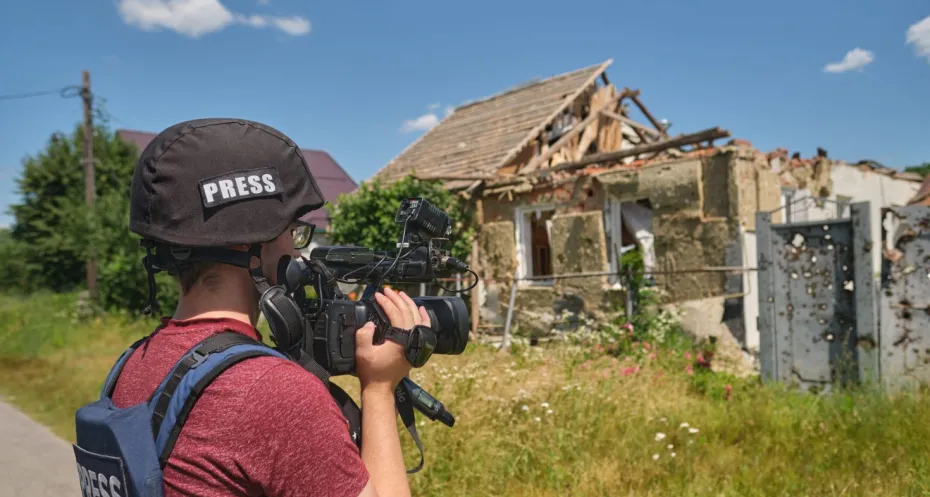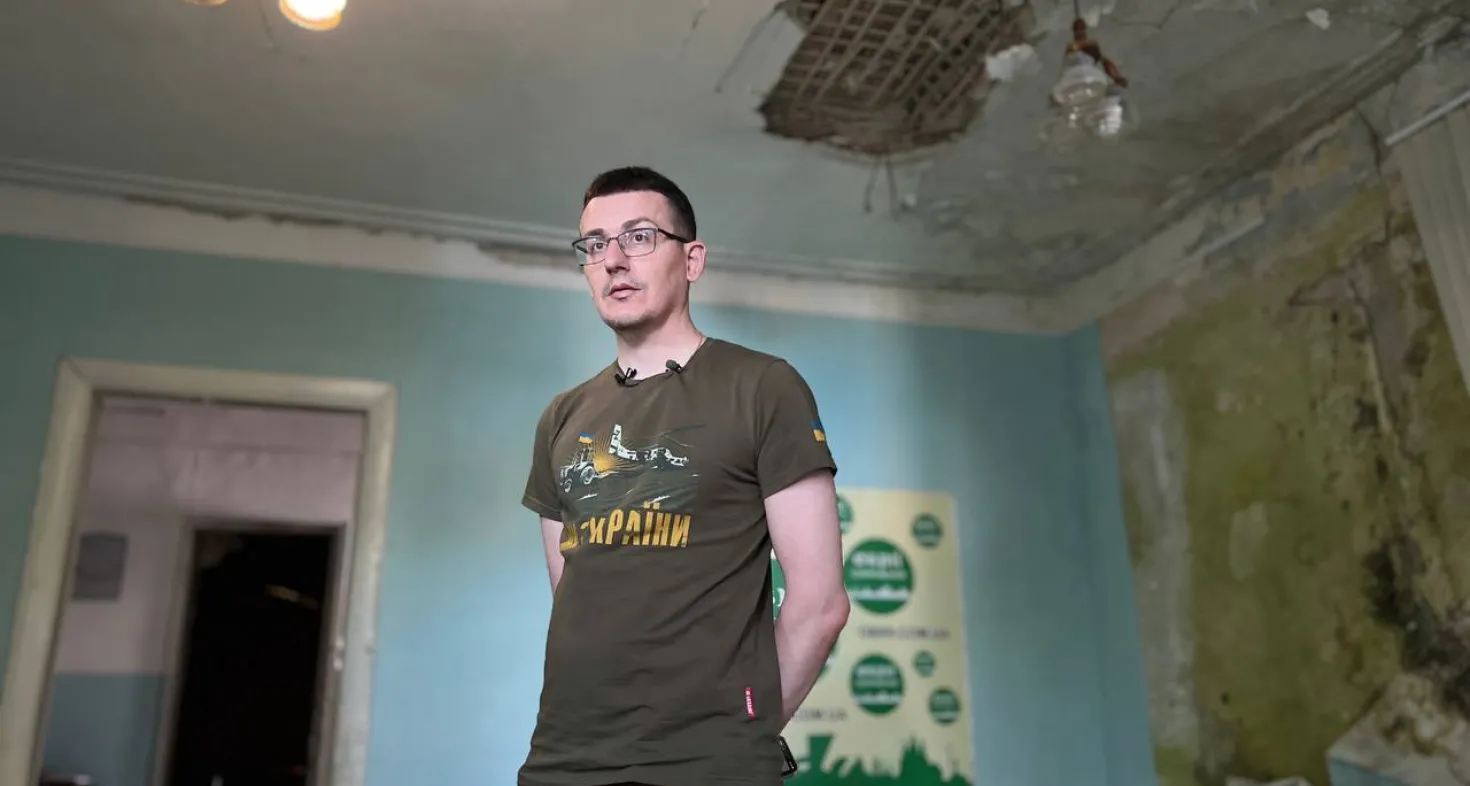
Ukrainian journalists suffer huge psychological pressure and economic crisis
Two years of war have left deep marks on Ukraine's journalistic community. President Sergiy Tomilenko of the National Union of Journalists of Ukraine receives regularly reports of journalists being shot at and media companies being bombed. The great dangers journalists face and the economic crisis in the country are forcing many media outlets to cease operations. The psychological pressure journalists are under is enormous, according to Tomilenko.
Tomilenko worries. There is a lack of much, if not everything, in the battered Ukraine. Amid this, the grim figures are a testament to the dangers: 16 journalists died on duty, nine as a result of Russian attacks on civilian targets and 54 while on military duty. ''The main needs of journalists today are centered around safety in the performance of professional duties. We are talking about protective equipment - bulletproof vests, helmets, tactical first-aid kits, as well as training in quick response to dangerous situations. Another important group of journalists' needs is the economic sustainability of their publications.''
Sustained support from the international community is a dire necessity, according to the president of the largest organisation for journalists in Ukraine. Free Press Unlimited is one of the organisations helping the NUJU. Just a few days after Russia invaded Ukraine, Free Press Unlimited launched Media Lifeline Ukraine. Now, two years later, that support is still undiminished.
Access to truthful information
,,The key areas of support from the international journalistic community are to encourage international organisations and programmes to support Ukrainian media and Ukrainian journalists, to provide technical and financial support so that journalists stay in the profession. To ensure that Ukrainians have access to professionally prepared, truthful information'', says Tomilenko. ,,The main support journalists from different countries can provide is to continue to highlight the injustice of the war that Russia has unleashed against Ukraine and to make global efforts to end the war so we can rebuild our country."
"Democracy and the desire to be a free country is what separates us from Russia, from tyranny. We believe that the lives of the victims of the war will not be in vain. We believe in a democratic Ukraine and society's willingness to protect journalists and media." - Sergiy Tomilenko, president National Union of Journalists of Ukraine (NUJU)
Tomilenko outlines that the media landscape in Ukraine has changed dramatically in two years. And with it, the psychological state of many journalists. The NUJU has now set up a psychological helpline available 24/7 to journalists and family members. ''Many people address this due to the instability of their media. As a result of the war and the economic crisis it caused, many media are forced to cease their activities and lay off workers. Journalists decide to leave the profession'', says Tomilenko. ,But there is also a lot of communication that inspires, especially when we communicate with our international partners who strive to help journalists rebuild media in the de-occupied and front line territories. Unfortunately, such communication is scarce.''
Tomilenko stresses that journalists in Ukraine need constant psychological help and support. ''And, unfortunately, they lack such help. But on the other hand, the very topic of seeking help from psychologists and psychotherapists is quite stigmatised in Ukrainian society. Many fear that the very fact of seeking psychological help or counseling indicates significant deviations in the psyche. Therefore, we have to state that the journalists themselves do not take enough care of their mental health, thereby possibly increasing the psycho-traumatic consequences of performing complex professional duties.''
Lack of psychological support
''Unfortunately, there is a lack of people in Ukraine who specialise in psychological support for journalists and media workers because some of the factors that affect the psyche are caused by the specifics of the profession: communication with victims of war crimes or people in grief, the desire and inability to help them.''
At the same time, states Tomilenko, there is a request for psychological support for journalists who lived under Russian occupation and who risked their lives to escape from the occupation. ''For example, our colleague, the deputy editor-in-chief of a local newspaper from Snihurivka, Mykolayiv Region, lived under occupation for eight months. Such people need particular attention.''
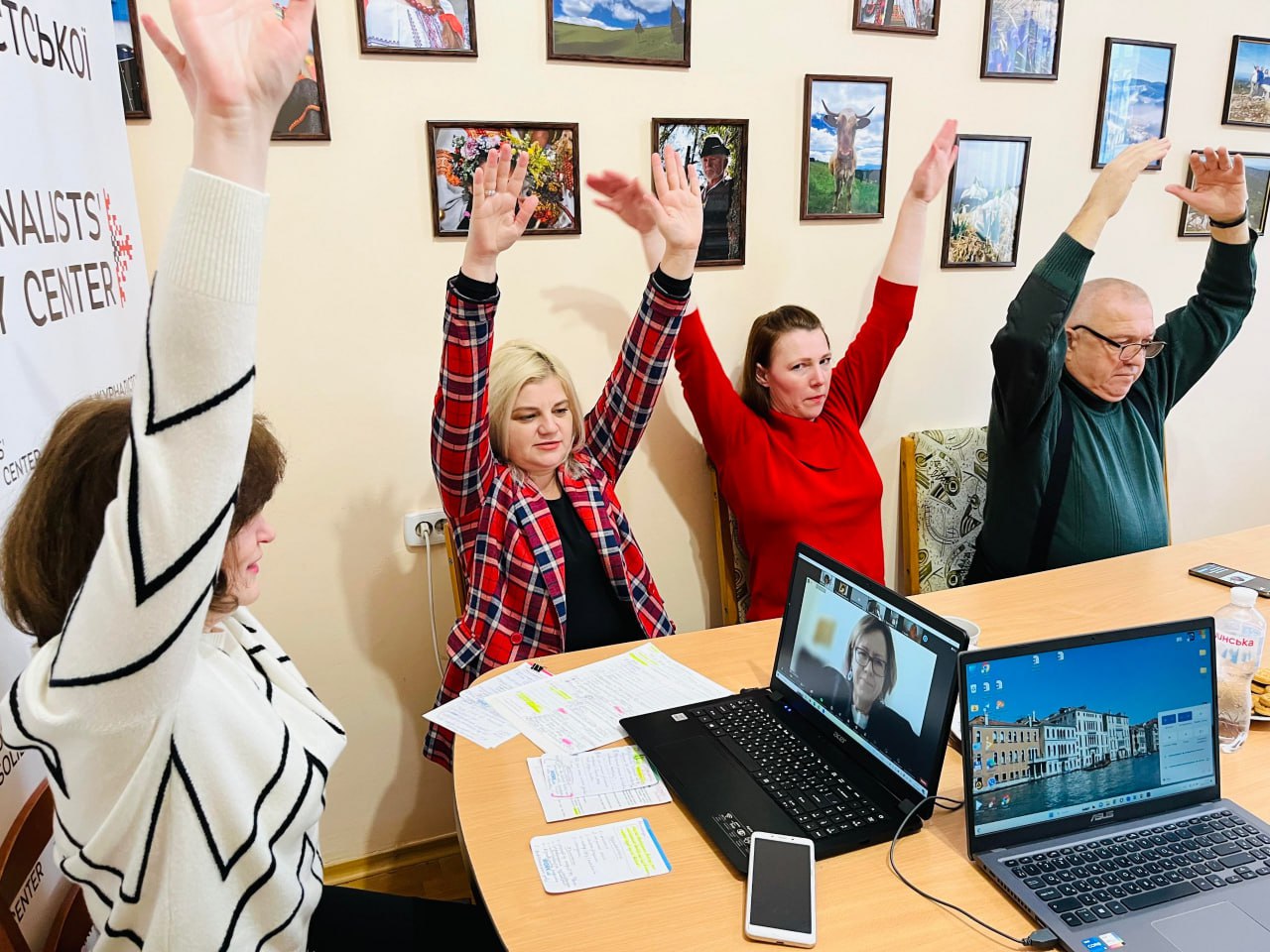
For Tomilenko himself, it is also a tough time, he admits. ''It is also difficult for me to constantly give answers to psychological challenges because I am the head of the largest journalistic organisation in Ukraine, which takes care of thousands of journalists, gives answers to hundreds of inquiries, and this has been going on for the third year since the beginning of the full-scale war. It is very difficult to be constantly alert. Of course, I also try to listen to the advice of psychologists and experienced journalists, find time to rest, overcome fatigue, and take care of my mental health.''
'Fatigue has become chronic'
But it is not easy. ''It is extremely difficult, and a certain professional fatigue has become chronic.'' By dividing work and hiring more people, the NUJU president hopes to cope with the challenges journalists face. And, he also sees bright spots. ,,When you see results, when you see that colleagues are getting help, it alone helps and supports a lot. For example, it is inspiring that thanks to the National Union of Journalists of Ukraine (NUJU), it was possible to revive 30 newspapers literally on the ruins of the front line and de-occupied territories; that we managed to help many journalists with evacuation from temporarily occupied territories; that our team of 15-20 employees is the embodiment of solidarity and a culture of mutual support aimed at helping media and journalists in need. This is a team that provides help to colleagues at the moment when they need it most.''
And that is much needed in a country where the occupying forces see media workers as a "legitimate target". "Of course, it is difficult to talk about complete freedom of speech in the conditions of war. Currently, we see a threat to freedom of speech in Ukraine primarily in the actions of the Russian military, actions directed against independent journalism.''
,,Another considerable threat to freedom of speech is the economic crisis, which destroys the foundations of the economic independence of the media. The threat to the survival of the media, its closure, and the forced reduction of the number of journalists - these factors are a real test of freedom of speech. The next elections, when they become possible, will be a kind of "litmus test" of how Ukrainian journalism has passed the test of war, how Ukraine managed to preserve freedom of speech. But for now, we strongly believe and hope that democracy and the desire to be a free country is what basically distinguishes us from Russia, from tyranny.’’
Continued support needed
Russia has not stopped bombing and destroying Ukrainian cities, which makes it impossible for our stipend receivers to return to their home country, even though that is their biggest wish. It was Free Press Unlimited’s biggest wish that Media Lifeline Ukraine had become obsolete in the past two years, but this is not the case. Far from it, as we see an ongoing need for support. To keep the flow of reliable information going, we want to continue and grow the issuing of stipends to refugee journalists as we have seen that this is a good way of supporting both journalists operating from exile, as those that still remain active within Ukraine.
"Ultimately, these journalists just want to keep doing their job: providing people with reliable, responsible journalism. That's what they do best and they need our support." - Ruth Kronenburg, Executive Director Free Press Unlimited
